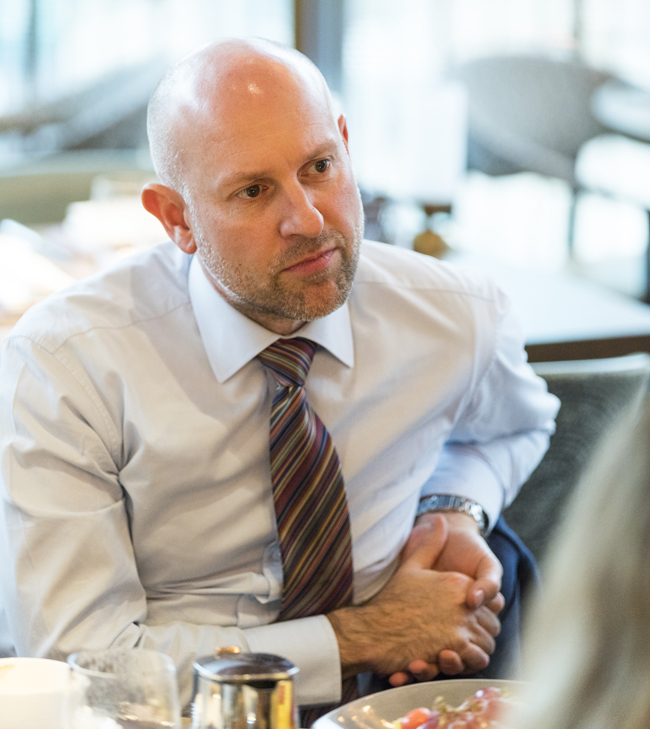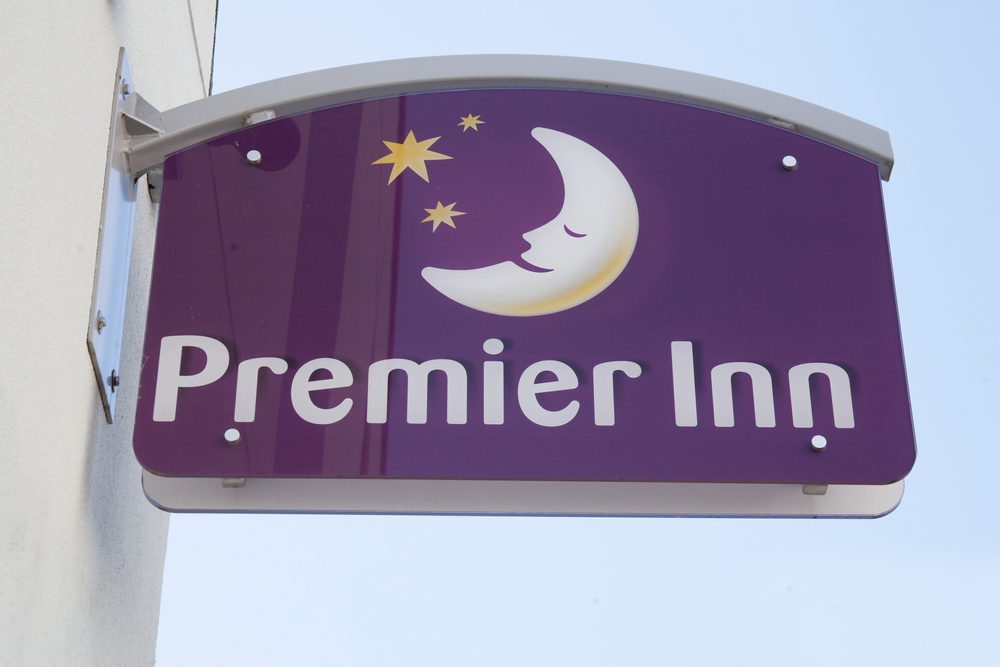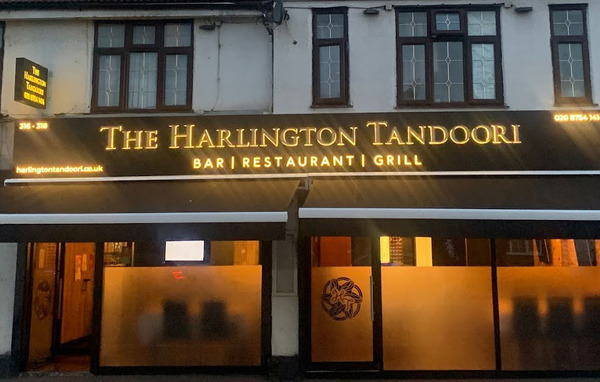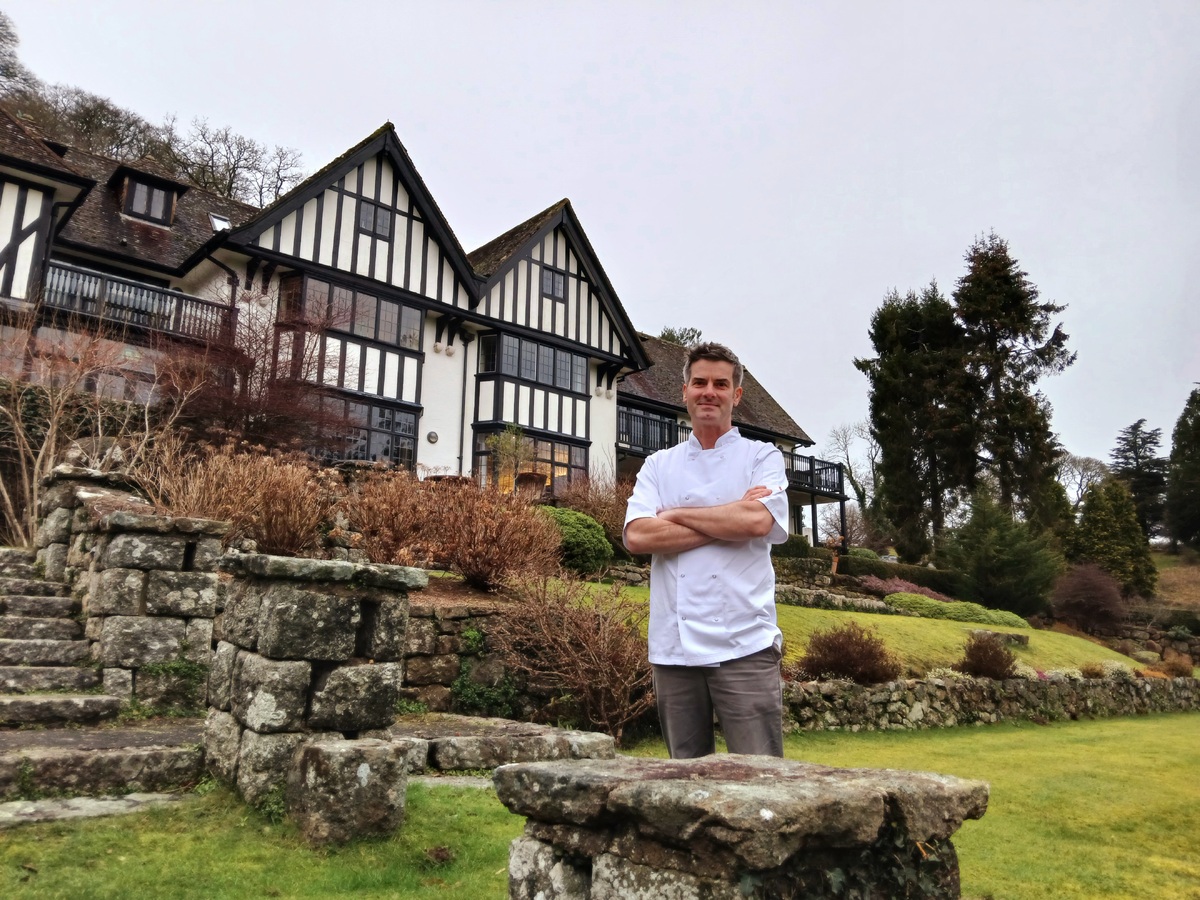Round table: The challenges and opportunities facing the restaurant sector in the new year
As the restaurant industry gears up for 2018, The Caterer, in partnership with HSBC, invited a cross-section of operators to Aster in London's Victoria to discuss the challenges and opportunities facing the sector in the new year. Rosalind Mullen reports
The attendees
James Sawley, Head of retail and leisure, HSBC
Neil Treadaway, Relationship director, Mid-Market Corporate Banking West End, HSBC
Gerard Callaghan, Financial controller, First Restaurant Group
Michael Farquhar, Operations director, D&D Restaurants


Simon King, Director of operations, Gordon Ramsay



What is the current state of the market?
James Sawley (JS): Operators that are out-performing include Azzurri [operator of Zizzi, Ask and Coco di Mama], which is reaping rewards after a long period of investment in its sites. Burgers are a tricky space, but Five Guys is out-performing the market because fast-casual quality is on a different level.
How was trading in 2017 and what is the mood for the new year?
Andreas Karlsson (AK): It was a good year for SticksânâSushi. We had a strong December and the nature of the sushi business means we expect to have a good January. We have confidence we will perform above expectations.
It was a brave decision, but the right one, because we are now seeing growth in both sales and transactions. Initially, after the price reductions, spend per head was down, but the [customer] basket is growing, so spend per head is also growing. We are talking about perceived value. If you reduce price, there is a stronger chance that customers will buy more.
In 2018, it wonât hurt to have a good price position. We are not cheap and we donât want to be, but we want to be perceived as good value. We consider ourselves as the future of fast food, so need to be accessible to everyone all the time.
Marcos Fernandez Pardo (MFP): In times of economic uncertainty, people take refuge in what they know. Our menu is traditional Spanish and our covers have increased. We work out what each customer wants to spend and get our pricing right. The versatility of our menu means they can have a light bite or a three-course meal.
Simon King (SK): At Gordon Ramsay, increasing food costs is a pressure, but we canât compromise on quality. We focus on the individual customerâs needs. We donât have the luxury of footfall, so we make sure we have an interaction rather than a transaction. Our customers are paying for an experience, so staff are trained to share their knowledge of the product to enhance that experience.
Can discounting work well?
JS: Individual Restaurantsâ Piccolino, which operates mainly in the north, does it well. They offer a loyalty card rather than discounting, so regulars build up points to spend. Staff are also incentivised to learn about the customer â" from where they like to sit to what they like to drink. It all drives loyalty.
David Moore (DM): At Pied à Terre, we have found that people have money to spend on fine dining. During the Olympics we offered a special tasting menu priced at £145, rather than the usual £105. We now call it the Chefâs Menu, but havenât changed the price back. It is still ticking over and accounts for 50% of tasting menu orders.
Gerard Callaghan (GC): Our London-based sites are up against the rise of street food in the lunch market. You have to discount if those around you are doing it. You can get lunch for £6 in Leather Lane, so we need to discount. The cost of running pubs is high, so having rooms above helps.
MFP: We need to discount in Manchester because the whole city discounts in January. We also do it in an introductory way. For instance, we may do a masterclass and charge for it, then give a discount on the customerâs meal.
How useful is social media?
MF: At D&Dâs Le Pont de la Tour, we tied up with street food operators and it brought fun, young customers onto our terrace. They donât pay us a fortune, but they drive an awareness because they are constantly posting on social media. We see increased numbers for two months either side. Social media gets people talking in the build-up, during and afterwards.
So are guests looking for an all-round experience?
SK: More people want live music and entertainment. It was once one of the first things that operators cut, but it shouldnât be. For us it is about what we can do to create a buzz.
MF: I agree. People want an experience. For instance, German Gymnasium in Kingâs Cross is doing well. The building is a former gym and we have yodelling in the loos. People want something to talk about and to post on social media or Snapchat.
SK: Fine dining is escapism. You can create a wow factor that is an escape from normality â" look at Heston Blumenthalâs Fat Duck. For us, our expertise is that everyone coming in is treated magically.
AK: Part of the entertainment is your staff. You need to pay attention to them.
MR: At Leon, we provide food in a 30-second service window and even in that short time we strive to give a big, warm welcome, so our staff are important.
Nowadays you have to be creative when it comes to staff recruitment and retention. What initiatives are you introducing?
MR: We recognise that for many staff, the job is a stop-gap. We have a programme that we call Fish, which we use to catch a âdolphinâ. In other words, we motivate them and offer them something more than working in hospitality. Our industry is littered with out-of-work actors, musicians and so on, so we actively go after them. For instance, we use the principal of Fish at our Shaftesbury Avenue site to recruit people who can sing. They do the same job on the same money, but while a server makes coffees, he sings, which makes him happy.
Well-being is part of what we do at Leon. We run a gym above our Oxford Circus site with classes run by Leon staff who are qualified to do fitness instruction. They swap a shift and get their regular pay. They do what they love and the staff get a class for free. They love it. Taking it further, for every event we have a shout-out asking for photographers or videographers. Itâs the same with sustainability. One guy has a degree in it but works in our restaurants, so he is part of our sustainability process. Itâs a case of âwhat else can you offer as well as rolling a wrap?â.
So the key to staff retention is to make sure they are enjoying their work?
MR: We have to accept that we wonât have staff for life and that keeping hold of people will become more crucial. But we can do something about it. While they are with us we want them to be engaged and have fun.
AK: They can be our ambassadors. The payback is to take care of those people who work in the famous square metre of the guest. We should encourage them to be selfish in terms of training and fill their tool box, so when they move on to the next job they will remember what they learned from your company.
We do an intro class for new members and I tell them that they will meet and connect with people around the world who they will be friends with for life â" even if they only touch the industry for a short time.
SK: The beauty of our industry is that it teaches lots of life skills. Our focus on the team has never been so high. Itâs about being more flexible, supportive and giving positive feedback â" fine dining has not always done that. Itâs not easy to attract staff and the skill-set you get now is not the same as it was. The work should be enjoyable because it is hard work and it needs a team effort.
What needs to be done to improve the image of the hospitality industry as a career?
MR: Young people are more used to having things at their fingertips, so we should ask them what good training looks like. Some of these e-learning programmes are so yesterday.
DM: EU workers are not coming any more, so we need to shout about hospitality as a career and get the younger generation to go into schools to inspire students. We need to get the message out that you donât need to go to university because by 22 you could be on a managerâs salary.
MR: There are lots of opportunities and a career path that they are unlikely to have in other industries. They donât know about that career path â" that they could be fast-tracked and be managing a business with a turnover of £1m and a team of 30. If you explain that and put fun in the mix it becomes a proposition. We need to get the message out because as a group we donât have enough of a voice.
Are you looking at technology that could streamline operations****?
MR: We talk about rising costs, so perhaps we will have fewer people and a different business module. For instance, we will shortly go into a more electronic way of operating. We may introduce a self-service kiosk, but I donât foresee a wall of screens because people are important to Leonâs ordering experience. However, some customers want speed so we may offer that. Itâs fine in Leon, but not in some operations.
MF: Thereâs already talk of shops where technology will charge you automatically. It might make sense to have a person meeting and greeting instead of at the till so you get better service. The bill experience in restaurants can be annoying if you are waiting for 20 minutes.
SK: We are full service, so we learn about a guestâs profile on our database. Imagine the power of a guest going to your restaurant in Manchester and then being recognised in your London restaurant. That costs us nothing except training our staff.
MF: Some [of our] restaurants are not as good at sharing information about customer preferences as others. The information is there, but it needs to be read [by the staff] and cross-referenced between restaurants. So it needs to be fun to use it.
What do banks look for when a company wants to expand?
Neil Treadaway (NT): Having a clear strategy and genuine point of difference with good story-telling that we can identify with resonates with us.
JS: Banks have been supportive over the past five years, but the cycle has turned and for businesses with too much leverage the issues are intensified. Banks are increasingly selective when it comes to lending, but we are open for business.
JS: We see a period of correction or self-cleansing, so expect some stress through 2018. The company voluntary arrangement will be a common feature. All consumer-facing businesses are finding it tough, but retail is tougher. For restaurants, the issue is the supply side, with demand spread thinly because it is saturated. But many businesses that are struggling are having good luck reassigning their leases. Not necessarily in restaurants, though, but in âeatertainmentâ.
NT: The basic tenets of lending still stand. Operations that are well-capitalised to absorb medium-term shocks in the market, with strong professional and proven management teams with experience will continue. Monitoring and control is also key for banks, so agreeing KPIs and producing quality and timely management information helps us to help you.









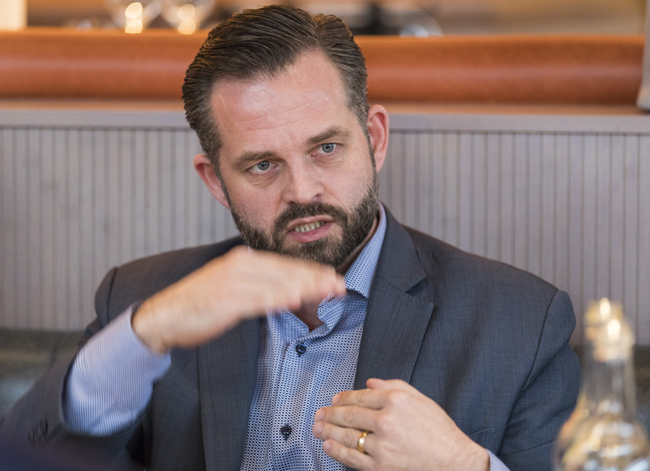
![Simon King [middle] and David Moore [right]](https://cdn.filestackcontent.com/K0kCHey9QU20tQp97WcO)
